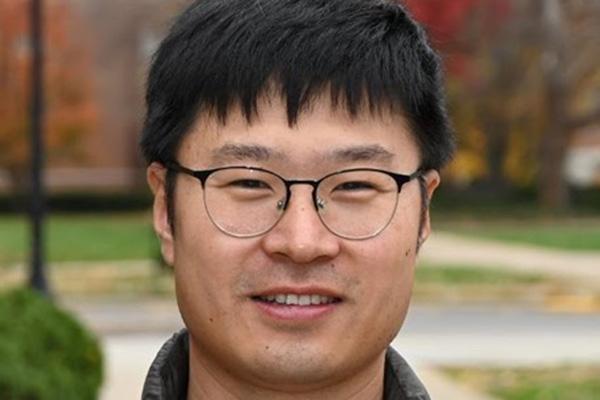
Dr. Jesse Zhang, Purdue University
Seminar Title: "Chemically selective imaging and precise, targeted control of biomolecular functions in live cells"
Host: Abraham Badu-Tawiah, badu-tawiah.1@osu.edu
Abstract:
Measuring the chemical compositions of biological systems is essential for understanding complex biological functions and tracking pathological changes. Over the last few decades, optical microscopy has advanced significantly, enabling high-resolution mapping of both physical and chemical properties in biological environments. Among these technologies, Coherent Raman Scattering (CRS) microscopy stands out as a powerful method for imaging chemical compositions, particularly lipids and pharmaceutical compositions, within biological samples. In this presentation, I will first highlight recent breakthroughs in CRS microscopy from my research group, demonstrating its application alongside fluorescence microscopy to study cellular responses under various stressors, especially focusing on cancer cells' alteration of lipid metabolism and cytoskeletal reorganization in hypoxic conditions.
The second part will introduce Real-Time Precision Opto-Control (RPOC), a cutting-edge technology that allows for site-specific, chemically selective control of subcellular processes with submicron precision. RPOC offers a novel approach to optical control, enabling unprecedented levels of precision, response time, selectivity, and versatility. RPOC enables new capabilities such as generating reactive oxygen species in specific organelles, activating drugs within distinct cellular compartments, precisely photo-uncaging small molecules, regulating cell division, selectively eliminating unwanted cells from populations, and more. These capabilities initiated discoveries in biological and medical sciences related to site-specific molecular functions and live cells. I will discuss the concept, history, and recent advancements in RPOC, and showcase its wide-ranging applications in biological and medical sciences through various examples.
Bio:
Dr. Chi Zhang is an Assistant Professor in the Department of Chemistry at Purdue University. He earned his Ph.D. in 2014 from the University of Michigan, specializing in surface nonlinear optical spectroscopy. From 2014 to 2020, his postdoctoral work at Purdue University, Boston University, and the University of Illinois focused on nonlinear optical spectroscopy and imaging for biomedical research. He began his independent research career at Purdue University in 2020, within the Analytical Division of the Chemistry Department.
Dr. Zhang’s current research focuses on developing novel optical imaging and opto-control technologies for biological applications. He has published over 55 peer-reviewed journal articles. His lab specializes in Raman spectroscopy and coherent Raman scattering microscopy for high-speed and high-resolution chemical analysis. In addition, his lab has pioneered Real-Time Precision Opto-Control (RPOC) technology, which enables precision optical control of chemical processes in live biological samples. His research is funded by the National Institutes of Health, the National Science Foundation, Merck & Co., the Purdue Trask Foundation, the Showalter Foundation, and the Center for Bioanalytical Metrology. Notably, he received the Maximizing Investigators' Research Award (MIRA) with 2 Million in support from the National Institute of General Medical Sciences. Additionally, Dr. Zhang is the Founder of Photokinesis LLC, a company dedicated to the commercialization of advanced optical control technologies.
